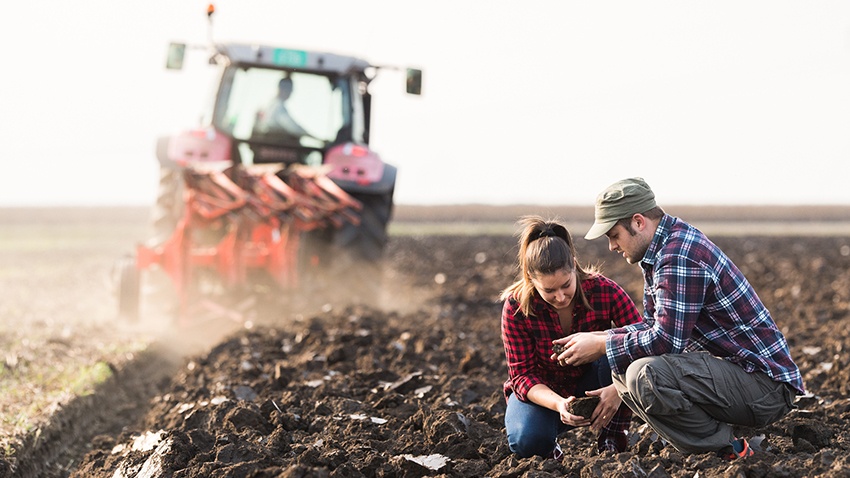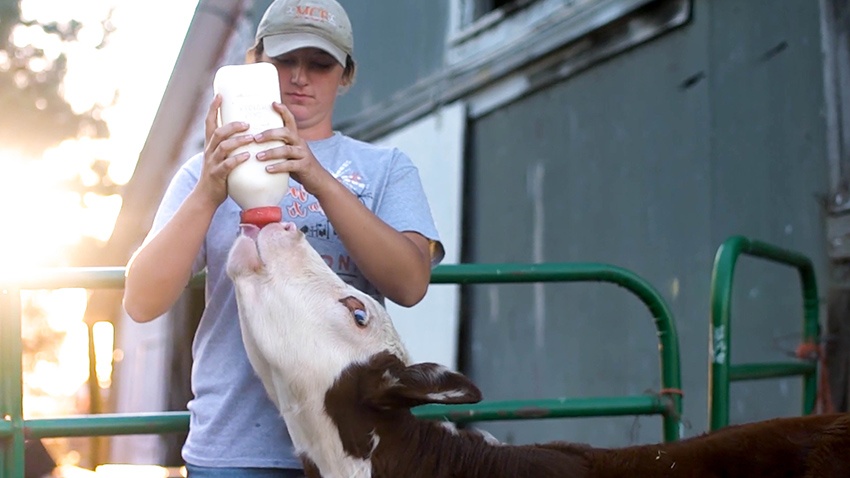
According to the 2012 Census of Agriculture, Nebraska saw a 42% increase in farmers under the age of 35. What does this mean exactly? Well, it’s encouraging to see young farmers returning and staying on the farm. For several years this number had been decreasing. In fact, the number of young farmers also increased nationally – for only the second time in the past century.
Millennials are the largest living generation in the U.S. By 2020 they will make up almost half of the workforce. With baby boomers retiring and the increase of younger farmers, it’s obvious millennials are the future of farming. However, the transition isn’t exactly smooth sailing for the younger generation. Here are some key challenges millennial farmers are facing.
By far the single biggest issue millennial farmers are facing is the high barrier to enter the industry. If they don’t have family backing or a source of off-farm income, they are fighting an uphill battle. Farming requires a lot of capital, and a lack of capital to purchase inputs, equipment or ground is a major constraint on beginning farmers.
Student debt is an often overlooked factor millennial farmers have to face. Millennial farmers are educated. Sixty-nine percent of surveyed young farmers have college degrees, according to the 2012 Census of Agriculture. That’s higher than the general public. However, education comes with a price tag. Many beginning farmers are coming out of college with $10,000 to $40,000 in student loans, that can severely restrict their cash flows, and hamper the growth of their operation.
Another issue millennials are facing is the tight land supply. It’s difficult to find land to farm for somebody getting started. Landlords are looking for tenants with a proven track record of paying rents. Typically, bigger farmers are able to not only provide a track record of payments, but they are also able to pay slightly higher rates due to their financial positions.
Despite some of the challenges, it doesn’t mean millennials are out of luck. My advice to millennial farmers is to start small with a source of off-farm income you can use to get your operation moving and your feet under you. As your operation progresses, it will slowly start to finance itself, and need less subsidization.
And finally, once you have your operation moving - don’t expand too quick. If you try to expand too quickly you will end up with debt your operation can’t support. Be patient, persistent and aware. At some point, opportunities will begin to present themselves.

Colby is a Relationship Manager / Officer at Heartland Bank. He graduated from UNK with a degree in Finance. Some of his hobbies include hunting, fishing, wake boarding and skiing.
Due to recently increased security requirements, we at Heartland Bank are no longer able to support version 10 or older of Internet Explorer. We are sorry for this inconvenience, and encourage you to upgrade to more secure options such as Internet Explorer 11, Google Chrome, or Mozilla Firefox.

As an eight-year-old, Leslie Carroll showed her first calf in 4-H. As a high school student, Leslie started helping her grandpa feed calves; and as a senior, she picked a topic for a research paper that steered her towards her future.